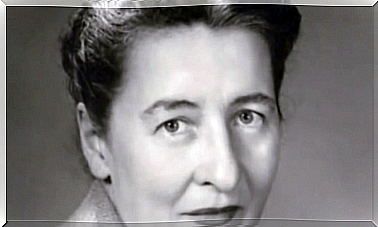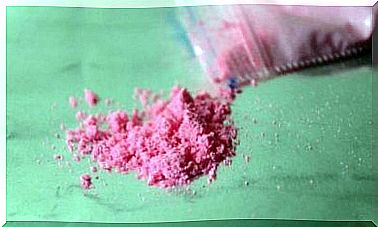Antidepressant Diet: Eat Well, Feel Better
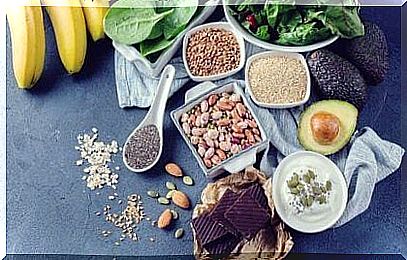
An antidepressant diet can not cure mental illness alone. However, nutrition is an interdisciplinary approach to treating depression. Something as simple as eating anti-inflammatory foods rich in antioxidants and vitamin C can help you improve both mood and well-being.
Mark Twain said the only way to stay healthy was to eat what you do not want to eat, drink what you do not like and do what you prefer not to do. It seems that feeling comfortable and enjoying inner balance is the opposite of the joy of eating. However, nutritionists and even psychologists say this is not the case.
The simple truth is that we eat poorly. Our interest in food is similar to that of an eight-year-old child. We so often prefer things that we can do quickly and that give us a whiff of carbohydrates, salt or sugar. There is also another factor that makes our diet even worse: the poor quality of our crops. The soil lacks sufficient organic material and mass production of fruits and vegetables negatively affects their nutritional value.
An inadequate diet affects your well-being. As such, it is crucial that you supplement any type of psychological treatment or medication with a proper diet. The long-term results will be noticeable.

Can an antidepressant diet really help?
In 2017, several universities in Australia and New Zealand conducted a series of studies in collaboration with various hospitals. They published their work in the medical journal “BMC Medicine”. Their goal was to find out if following a particular diet could have any effects on patients diagnosed with depression. The results were positive and patients began to see results after about 12 weeks.
The relationship between mood and diet is a budding field in what we call “nutritional psychiatry”. Furthermore, there is scientific evidence that what we eat significantly affects our emotions and well-being. It is therefore worth paying attention to your diet and taking note of the following guidelines.
1. Whole grains
Whole grains are an excellent source of vitamins, minerals, dietary fiber, antioxidants and plant nutrients. Foods like brown rice, oats or buckwheat provide a good amount of tryptophan. Tryptophan is an essential amino acid that synthesizes serotonin, which is known as the hormone of happiness and well-being.
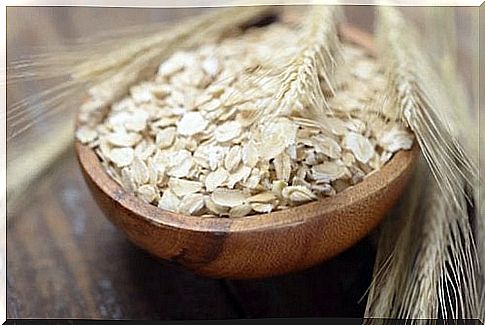
2. Green leaves
Leafy greens are an indispensable part of an antidepressant diet. When you think of green leaves, you probably immediately think of spinach, but there are many other options. To get your dose of leafy greens, you can also eat broccoli, beetroot, watercress, kale, etc.
Leaf green is nutritious. But it is especially important against depression because it provides antioxidants, folic acid and B and C vitamins that reduce stress and anxiety.
3. Fish oil
In the Australian and New Zealand study, participants ate fatty fish two or three times a week. There are many options in your local supermarket. You can choose salmon, tuna, trout, herring, mackerel among others. The biggest benefit for patients with depression is the high levels of omega-3 fatty acids found in fatty fish.
This type of long chain polyunsaturated fatty acids is an exceptionally good neuron protector.
4. Chicken and turkey
Red meat is not part of an antidepressant diet. Instead, poultry is the preferred meat. Chicken and turkey are both good options. They are rich in protein and contain an amino acid called tyrosine, which promotes an increased dopamine content in the brain. Chicken and turkey both taste well grilled with a little lemon and olive oil. Not only that, but you will also feel more comfortable.
5. Beta-carotene
Carrots, pumpkins, tomatoes… Vegetables that are red or orange in color contain beta carotene, an important nutrient that in your body becomes beta carotene. Thanks to beta carotene, your body will be more balanced, have better blood circulation and be able to fight free radicals. Not only that, but eating oranges and red vegetables will improve your mood and may even relieve headaches.

6. Nuts
Nuts are an indispensable part of an antidepressant diet. You should eat 4-6 nuts every morning as part of your breakfast. In general, nuts and seeds are very beneficial for mood disorders. They provide omega-3, vitamin E, antioxidants and zinc. Nuts and seeds are powerful neuron protectors and will improve your well-being.
7. Sample bacteria
Kefir is some of the best probiotics you can find. It is very poor in lactose and more importantly, it strengthens and promotes good intestinal flora. Remember that most of the serotonin in your body is produced in the gut, not in the brain. That is why it is so important to have strong and healthy intestinal microbiology that facilitates serotonin production.
Your gut bacteria promote good digestion and help you better absorb nutrients. But that’s not all they do. Your bowel activity also affects your cognitive, emotional and sensory functions. A little kefir with fruit for breakfast can perform miracles in the long run.
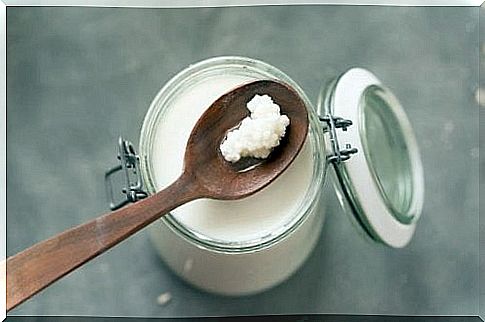
If you are experiencing depression (or another psychological problem), having a healthy and varied diet will not make your problem go away. However, it will promote the optimal conditions for your healing and treatment processes to be more effective. It will make you feel comfortable and make more serotonin and dopamine available to your brain.
Eating healthy will always be worth it.
